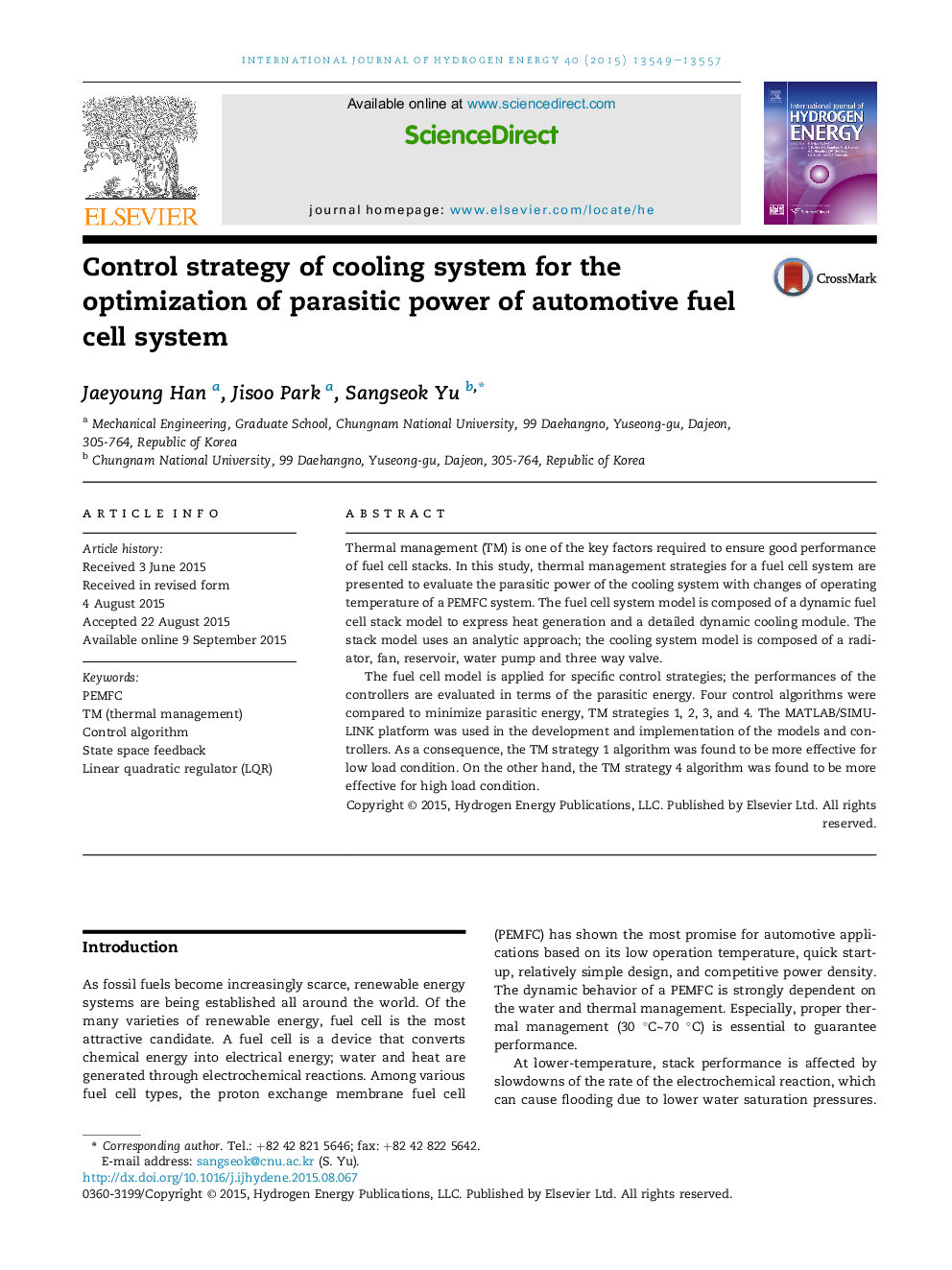| کد مقاله | کد نشریه | سال انتشار | مقاله انگلیسی | نسخه تمام متن |
|---|---|---|---|---|
| 1274646 | 1497434 | 2015 | 9 صفحه PDF | دانلود رایگان |
• We designed a dynamic model of PEMFC with thermal management module.
• We designed a conventional feedback algorithm to operate cooling fan.
• We designed a state feedback control algorithm for a MIMO system.
• The control strategies were compared in terms of the parasitic powers.
• These strategies were evaluated using simulation of fuel cell system.
Thermal management (TM) is one of the key factors required to ensure good performance of fuel cell stacks. In this study, thermal management strategies for a fuel cell system are presented to evaluate the parasitic power of the cooling system with changes of operating temperature of a PEMFC system. The fuel cell system model is composed of a dynamic fuel cell stack model to express heat generation and a detailed dynamic cooling module. The stack model uses an analytic approach; the cooling system model is composed of a radiator, fan, reservoir, water pump and three way valve.The fuel cell model is applied for specific control strategies; the performances of the controllers are evaluated in terms of the parasitic energy. Four control algorithms were compared to minimize parasitic energy, TM strategies 1, 2, 3, and 4. The MATLAB/SIMULINK platform was used in the development and implementation of the models and controllers. As a consequence, the TM strategy 1 algorithm was found to be more effective for low load condition. On the other hand, the TM strategy 4 algorithm was found to be more effective for high load condition.
Journal: International Journal of Hydrogen Energy - Volume 40, Issue 39, 19 October 2015, Pages 13549–13557
